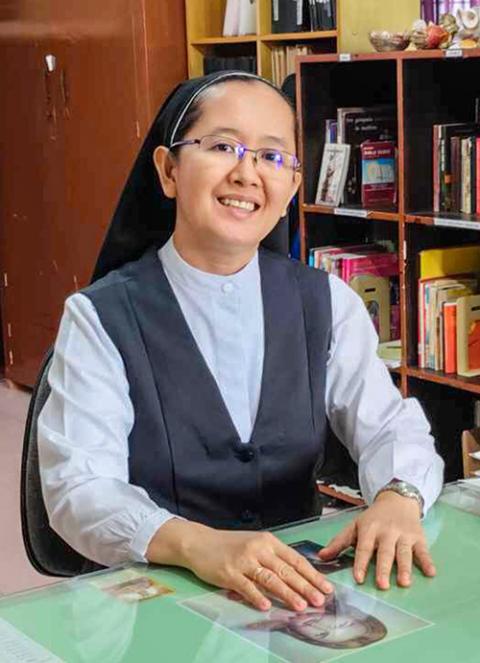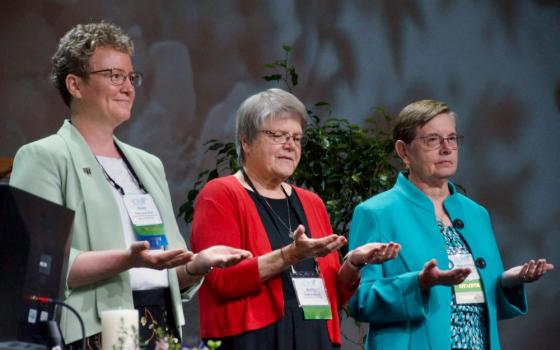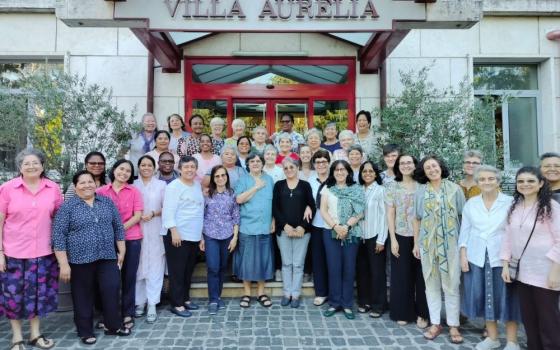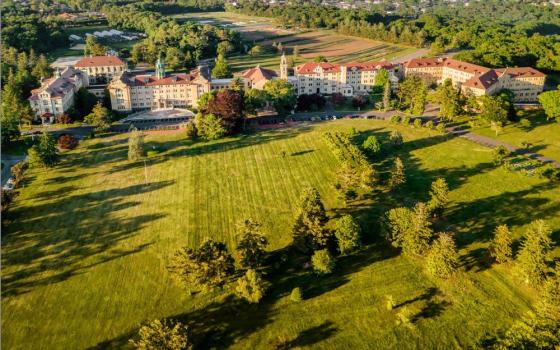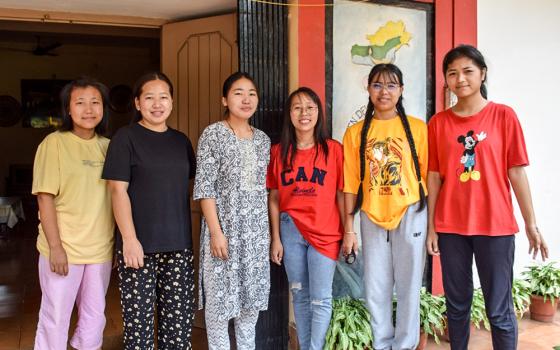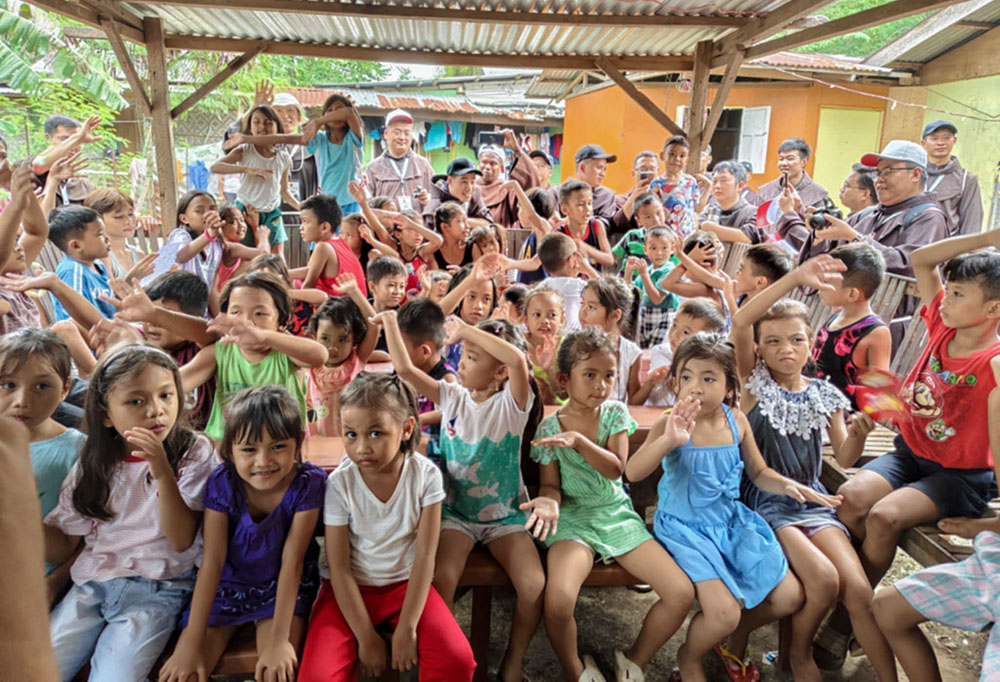
Children from the adopted community in Lapu-Lapu City, Mactan Island, Cebu, Philippines, gather at the makeshift venue for tutorials, catechesis and meals. (Courtesy of Franciscan Sisters of the Immaculate Conception of the Holy Mother of God)
For more than 10 years, the Franciscan Sisters of the Immaculate Conception of the Holy Mother of God have been supporting the education of children. They have also been helping economically challenged parents earn more and sustain the needs of their children in education.
Currently, the sisters take care of two "adopted" communities in the Philippines' central Visayas region, said Sr. Girlie Lopez, formation program coordinator of her congregation.
One of their adopted communities is in Cordova, a town on Mactan Island in the province of Cebu, more than 1,000 kilometers southeast of Manila, the Philippines' capital.
Lopez said the sisters conduct monthly tutorials and catechesis and feed 40 malnourished children in this community at the Cordova Alternative Resource for Education center. The congregation has been helping this community for more than a decade.
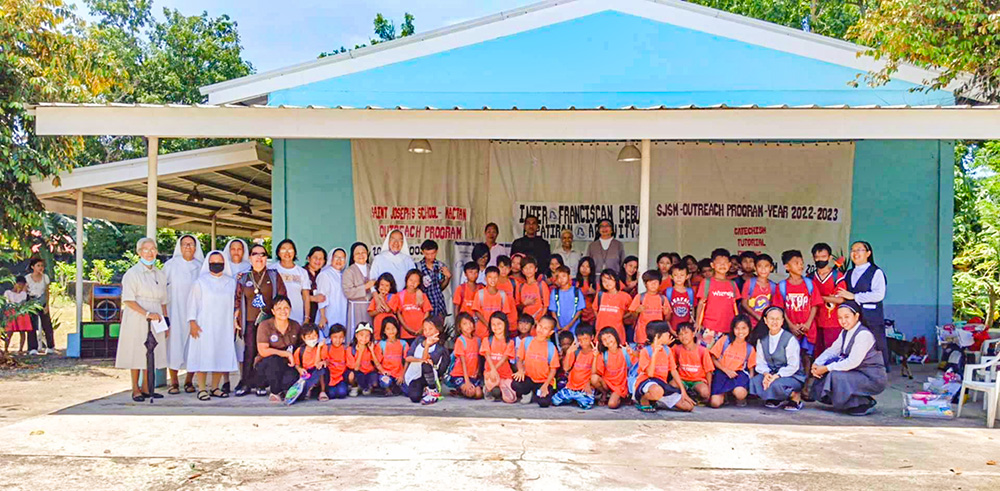
Sisters and their adopted community in Cordova, Mactan Island, Cebu, Philippines (Courtesy of Franciscan Sisters of the Immaculate Conception of the Holy Mother of God)
The congregation's other adopted community is in Lapu-Lapu, the only city on Mactan Island.
This community is known as Luyo Eskwelahan Mactan Urban Poor Association and involves 80 children of informal settlers. The sisters started taking care of this community in 2022.
The tutorials, catechesis and meals for the children are held monthly in a makeshift, small structure built by volunteers with mostly preowned materials.
Although the community was adopted just two years ago, its location is more accessible, as it is near St. Joseph's School of Mactan, administered by the congregation.
Lopez added that the sisters have also conducted several medical and dental missions for this community.
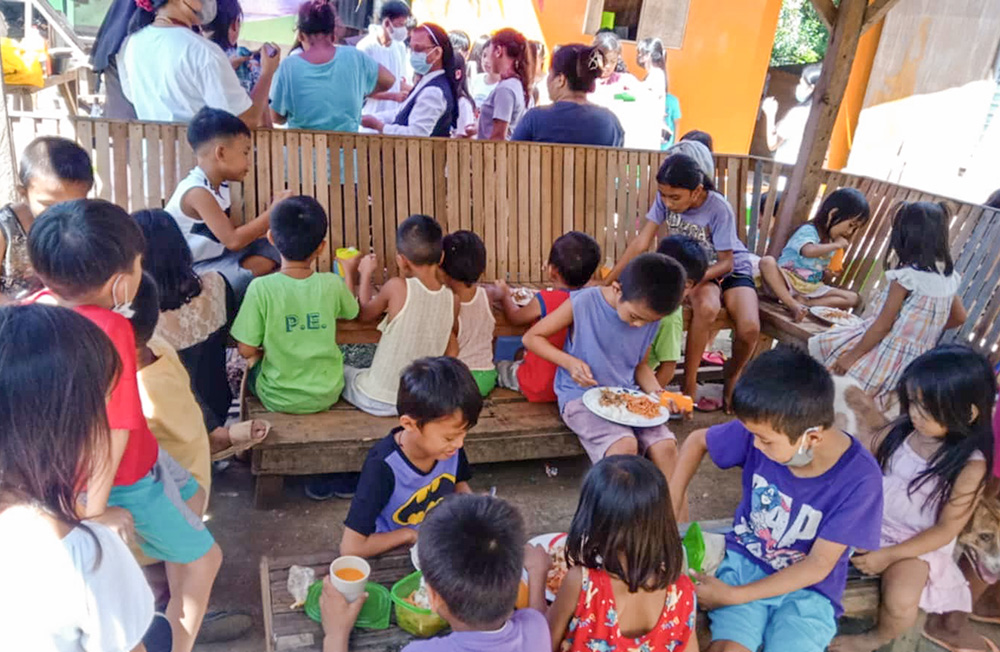
Children from the adopted community enjoy a meal in Lapu-Lapu City, Mactan Island, Cebu, Philippines. (Courtesy of Franciscan Sisters of the Immaculate Conception of the Holy Mother of God)
She said the tutorials for all the children in the two communities include basic literacy and numeracy.
All the children are taught basic catechesis, like making the sign of the cross and reciting prayers. The congregation also provides funds for the meals of malnourished children, and volunteer mothers prepare the food.
"The program is a continuing one," Lopez said. "When the children can read and write and are prepared to go to the public school, they graduate from the program, and other children are admitted to it."
Outside the sisters' adopted communities, the congregation supports and encourages the education of other children.
On Aug. 25, the nuns donated erasers, pencil sharpeners, ballpoint pens, pencils, crayons, coloring pencils, writing papers and bond papers to children in Lapu-Lapu, Lopez said.
The children were also given alcohol spray bottles, mini fans, and tumblers, as well as three kilos of rice, burgers and fruit juices.
Lopez said outreach to children outside the adopted community program is not a regular activity. But the sisters do it occasionally, especially during Christmas.
The nuns observe that poverty is the root cause of why many children in the communities quit high school and get married at a young age. This reality prompted the congregation to help parents overcome their financial challenges by offering free livelihood training.
"We invite mothers to join [our] free livelihood training so that they can make a living and eventually come to not depend on the assistance we offer them," Lopez said.
The sisters have been providing mothers with free livelihood training for the past two years, said Sr. Medelyn Potestas, outreach program facilitator of the congregation.
"The parents of the children in our adopted communities are mostly fishermen, construction workers and tricycle drivers," she said.
Most of the recipients are children of tricycle drivers. The tricycle is a form of transportation in the Philippines that has a seating capacity of four passengers. It is a motorbike with a side carriage attached to it.
Advertisement
Potestas said the livelihood training offered by the congregation to the mothers in the adopted communities includes making dishwashing liquid and powder soap.
About 20 mothers in Cordova had trained in making dishwashing liquid and powder soap before the outbreak of the COVID-19 pandemic, Lopez added.
The sisters also offered the same free livelihood training to about 10 mothers in Lapu-Lapu in 2023.
The nuns bought the mothers all the materials needed to make soap.
The sisters also do their share in caring for the environment. On Aug. 31, they joined other Franciscans in Cebu — priests, brothers and women religious — in a coastal cleanup in Cordova.
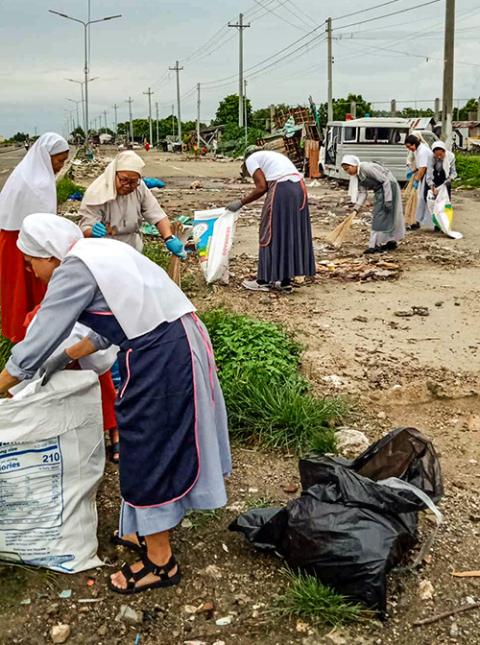
Sisters clean up the seaside in Cordova, Mactan Island, Cebu, Philippines, Aug. 31. (Courtesy of Franciscan Sisters of the Immaculate Conception of the Holy Mother of God)
After the cleanup activities, they distributed seven kilos of rice and school supplies, including pencil sharpeners, erasers, crayons, ballpoint pens, pencils, writing papers and envelopes to the children in the adopted community in Cordova.
Last May, St. Joseph's School of Mactan students and their parents, alumni, the school administration and faculty conducted a coastal cleanup in Cordova as part of the congregation's apostolate to safeguard and conserve the environment.
"St. Francis of Assisi is the patron saint of ecology," Lopez said. "That's why we really have this passion for caring for the creation. And this is responding to the call of the times."
Lopez observed the response to Pope Francis' encyclical "Laudato Si', on Care for Our Common Home" is still relatively small. In the encyclical, the pope underscored the issue of environmental degradation and called for a swift, unified global response.
She said the environmental situation has become an alarming issue and that everyone should come together and take concrete actions to preserve and protect creation.
As part of their formation, the congregation actively encourages young people in their communities to become good citizens in the future.
"We hope these children will eventually grow into agents of social transformation," Lopez said.

